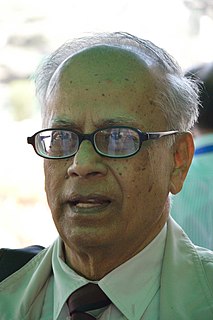
Mahseer is the common name used for the genera Tor, Neolissochilus, Naziritor and Parator in the family Cyprinidae (carps). The name is, however, more often restricted to members of the genus Tor. The range of these fish is from Vietnam in the north and China in the south, through Laos, Cambodia, Thailand, Malaysia, Indonesia, and across southern Asia including the Indian Peninsula, Sri Lanka, Pakistan and Afghanistan. They are commercially important game fish, as well as highly esteemed food fish. Mahseer fetch high market price, and are potential candidate species for aquaculture. Several of the larger species have suffered severe declines, and are now considered threatened due to pollution, habitat loss, overfishing and increasing concern about the impacts of unregulated release of artificially bred stock of a very limited number of species.

The little swift, is a small species of swift found in Africa and southwestern Asia, and are vagrants and local breeders in southern Europe. They are found both in urban areas and at rocky cliffs where they build nests in a way typical of all members of the order Apodiformes. The genus name Apus is Latin for a swift, thought by the ancients to be a type of swallow without feet. The Latin specific affinis means similar to or related to, but in this case the species that the little swift supposedly resembles is not clear from the description. A population formerly considered to be an eastern subspecies of little swift is now separated as a distinct species, the house swift.

The Karnala Bird Sanctuary is located in Panvel Taluka of Raigad District, outside Mumbai, India near Matheran and Karjat. The sanctuary is quite small with an area of 12.11 square kilometres but along with the Sanjay Gandhi National Park and Tungareshwar sanctuary is one of the few sanctuaries to be within reach of the city of Mumbai.

The kanjira, khanjira, khanjiri or ganjira, a South Indian frame drum, is an instrument of the tambourine family. As a folk and bhajan instrument, it has been used in India for many centuries. It was modified to a frame drum with a single pair of jingles by Manpoondia Pillai in the 1880s, who is credited with bringing the instrument to the classical stage. It is used primarily in concerts of Carnatic music as a supporting instrument for the mridangam.
The flora and fauna of Chennai are the plants and animals in Chennai, India.

Similipal National Park is a national park and a tiger reserve in the Mayurbhanj district in the Indian state of Odisha covering 2,750 km2 (1,060 sq mi). It is part of the Mayurbhanj Elephant Reserve, which includes three protected areas — Similipal Tiger Reserve, Hadgarh Wildlife Sanctuary with 191.06 km2 (73.77 sq mi) and Kuldiha Wildlife Sanctuary with 272.75 km2 (105.31 sq mi). Simlipal National Park derives its name from the abundance of red silk cotton trees growing in the area. It is the 7th largest national park in India.

The Indian tent turtle is a species of turtle in the family Geoemydidae. The species is endemic to India and Bangladesh.

Sphagneticola trilobata, commonly known as the Bay Biscayne creeping-oxeye, Singapore daisy, creeping-oxeye, trailing daisy, and wedelia, is a plant in the Heliantheae tribe of the Asteraceae (sunflower) family. It is native to Mexico, Central America, and the Caribbean, but now grows throughout the Neotropics. It is widely cultivated as an ornamental groundcover.

The Central Marine Fisheries Research Institute(CMFRI) was established by Government of India on 3 February 1947 under the Ministry of Agriculture and Farmers Welfare and later, in 1967, it joined the Indian Council of Agricultural Research (ICAR) family and emerged as a leading tropical marine fisheries research institute in the world. The Headquarters of the ICAR-CMFRI is located in Kochi, Kerala. Initially the institute focused its research efforts on creating a strong database on marine fisheries sector by developing scientific methodologies for estimating the marine fish landings and effort inputs, taxonomy of marine organisms and the biological aspects of the exploited stocks of finfish and shellfish on which fisheries management were to be based. This focus contributed significantly to development of the marine fisheries sector from a predominantly artisanal, sustenance fishery till the early sixties to that of a complex, multi-gear, multi-species fisheries.

Bibek Debroy is the Chairman of the PM's Economic Council. Debroy has made significant contributions to game theory, economic theory, income and social inequalities, poverty, law reforms, railway reforms and Indology among others.

The dwarf gulper shark is a dogfish of the family Centrophoridae found in the Indo-West Pacific oceans, from the Gulf of Aden, Japan, Taiwan, and northern Papua New Guinea. As a Squaliform, Centrophorus atromarginatus has high amounts of Squalene in its liver, and it is fished for this resource. It is a deep-water fish, whose habitat is in bathydemersal waters.

Botanical Survey of India (BSI) located in Kolkata, West Bengal, India. It was founded on 13 February 1890, is Government of India Ministry of Environment, Forest and Climate Change's organization for survey, research and conservation of plant wealth of India, flora and endangered species of India, including by collecting and maintaining germplasm and gene bank of endangered, patent and vulnerable plant species.

The bamboo partridges are birds of the genus Bambusicola in the family Phasianidae. They are all rated as 'of least concern'. It contains 3 species.

Tor putitora, the Putitor mahseer, Himalayan mahseer, or golden mahseer, is an endangered species of cyprinid fish that is found in rapid streams, riverine pools, and lakes in the Himalayan region. Its native range is within the basins of the Indus, Ganges and Brahmaputra rivers. It is a popular gamefish, once believed to be the largest species of mahseer, and can reach up to 2.75 m (9.0 ft) in length and 54 kg (119 lb) in weight, though most caught today are far smaller. It is threatened by habitat loss, habitat degradation and overfishing, and it already has declined by more than an estimated 50%. This omnivorous species is generally found near the surface in water that ranges from 13 to 30 °C (55–86 °F).

Expressways are the highest class of roads in India. In India, expressways are controlled-access highways where entrance and exit is controlled by the use of ramps that are incorporated into the design of the expressway, whereas National highways are at-grade roads. Some roads are not access controlled, but are still officially called expressways, such as the Biju Expressway.

The Kerala Forest Research Institute (KFRI) is an organisation based in Peechi, in Thrissur, India. It was established in 1975 by the Government of Kerala as part of its Science and Technology Department, and in 2003 became part of the Kerala State Council for Science, Technology and Environment.

Chukrasia tabularis, the Indian mahogany, is a deciduous, tropical forest tree species in the family Meliaceae. It is native to Bangladesh, Cambodia, China, India, Indonesia, Laos, Malaysia, Myanmar, Sri Lanka, Thailand, and Vietnam. Also introduced to many western countries such as Cameroon, Costa Rica, Nigeria, Puerto Rico, South Africa, and United States.

Saroj Ghose is an Indian science popularizer and museum maker. He was the director of Birla Industrial & Technological Museum and director general of the National Council of Science Museums, Government of India. He was also the President of the International Council of Museums in Paris during 1992-98. He won many awards including one for "Best Effort in Science Popularisation Amongst Children". He has also mentored some of India's best Museum Developers.

People for Animals (PFA), also known as People for Animals India, is India's largest animal welfare organization. Maneka Gandhi, who started the organization in 1992, is its current chairperson.

















